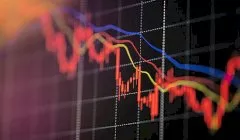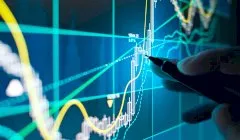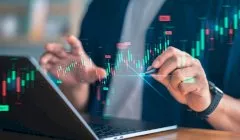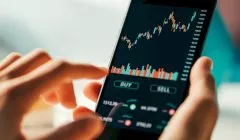Invest
Is ESG investing a bubble or the future?
Investors are having a change of preference, with climate risk becoming more prevalent than ever. But is this driving the next investing fad or is it the way of the future?
Is ESG investing a bubble or the future?
Investors are having a change of preference, with climate risk becoming more prevalent than ever. But is this driving the next investing fad or is it the way of the future?

According to research by the RIAA, responsible investing now makes up over a third of Australian assets under management – managed by professional fund managers.
Tom Stevenson, investment director at Fidelity International, said that from time to time, investors have a tendency to become irrationally enthusiastic, while many that were burnt by past seemingly ‘bulletproof’ investment, such as the tech bubble in the 2000s, have become very cautious. In fact, some are questioning whether ESG is a fad.
Dubbing bulletproof stocks from past market crashes the Nifty 50, Mr Stevenson said, “today’s hot investment story is sustainability.”
“As with the largely consumer story of the Nifty 50 and the digital revolution of the 1990s, the story underlying today’s ESG narrative is completely plausible,” he said.

“The environmental strand reflects the most important challenge facing the world today, climate change. Neither the social nor governance themes are fads either. They mirror unstoppable changes in what is considered acceptable corporate behaviour.”
The fund manager said the fact ESG is being talked about as a potential stock market bubble is ‘disappointing’, highlighting that the fundamentals between bubbles of the past and today’s investment are different.
“But unless you place yourself firmly at the philanthropic end of the investment spectrum, none of them are reasons to disregard the fundamental factors that drive returns,” he continued.
“The stories that underpinned the Nifty 50 and the tech bubble were not wrong, although they were maybe exaggerated or premature. Today’s enthusiasm for ESG is likewise wholly reasonable. But none of them were enough by themselves to overcome the stock market’s law of gravity.”
The three drivers behind share price movement
To help investors decide whether ESG investing is a bubble, Mr Stevenson explained the driving forces behind stock price growth and how ESG relates.
He opined that three main driving factors underpin movements in share prices - future earnings or fundamentals, price that an individual is willing to pay for it, and the sheer weight of investment money.
“Of these three drivers, growth is where the ESG story is on firmest foundations,” he said.
"The problem then is not a lack of potential growth. It is rather that many investments are being wrongly identified as growth opportunities.”
The second driver of share movements, price, is where ESG is on shakier ground. One of the key arguments for investing in sustainable companies is that directing capital towards them makes the world a better place.
“More good things happen because companies find it more profitable to engage in green or socially responsible activities.
“And bad companies are effectively priced out of existence. On one level, that’s clearly a good thing, but the flip side of a low cost of capital for good companies is a low expected return for the investors who provide it. The more you pay for a given cash return, the lower its effective yield to you.”
This means investors worried about an ESG bubble would be seeing smaller returns even though they are willing to pay more for them.
The third driver, the weight of money, is in Mr Stevenson’s opinion the most risky driver when it comes to share prices.
“This is because the wall of cash going into ESG investments disguises what is really going on with the other two drivers, growth and price. It drives prices higher in the short term, thanks to the simple arithmetic of supply and demand. ESG-focused assets have now reached US$40 trillion and the pace of accumulation has accelerated during the pandemic,” the investor noted.
He pointed to Morningstar data, which showed that ESG funds saw inflows of US$46 billion in the first quarter of this year compared with outflows of US$385 billion in the broader fund universe.
“This matters because ESG matters. When the Nifty 50 blew up, it was not the end of the world. Even the bursting of the tech bubble merely set things back a few years. The ESG stakes are higher. A little less exuberance now might not be a bad thing in the longer run,” Mr Stevenson concluded.
About the author

About the author


Shares
DREST gears up for innovation with the appointment of new co-CEO and CTO
Luxury fashion and lifestyle mobile game DREST has announced significant leadership changes as it prepares for an exciting phase of development and expansion. Read more

Shares
Hope for investors scared by share and crypto crashes
As share markets and cryptocurrency take a beating following the tightening of monetary policy across the world, investors are contemplating their next move. Read more

Shares
Cannon-Brookes tries to block AGL demerger
Mike Cannon-Brookes is not giving up on AGL after the latter announced 15 June as the date of the demerger vote. Read more

Shares
Qantas set to acquire Alliance Aviation
The two airlines have entered into a scheme implementation deed. Read more

Shares
Bond and share investors may shrug off RBA’s rate hike
As mortgage holders reel from the prospect of having to reach deeper into their hip pockets to make bigger repayments following the Reserve Bank of Australia’s (RBA) interest rate hike from 0Read more

Shares
How to buy Shares: A beginner’s guide in 2022
So you want to get in on the stock market action? Congratulations, that’s an exciting step! But first, there are a few things you should know before you buy your first shares. Read more

Shares
Elon Musk chokes up on bid to swallow Twitter
The battle of the bird has intensified over the last week, as Tesla and SpaceX founder Elon Musk has ramped up his aggressive campaign to buy the entirety of social media giant, Twitter. Read more

Shares
How to Make Money in Short Selling
What is short selling? There is a common practice for people who actively trade in the stock market, which is to “buy low and sell high”, but what if you can still make money by doing the opposite? Read more

Shares
DREST gears up for innovation with the appointment of new co-CEO and CTO
Luxury fashion and lifestyle mobile game DREST has announced significant leadership changes as it prepares for an exciting phase of development and expansion. Read more

Shares
Hope for investors scared by share and crypto crashes
As share markets and cryptocurrency take a beating following the tightening of monetary policy across the world, investors are contemplating their next move. Read more

Shares
Cannon-Brookes tries to block AGL demerger
Mike Cannon-Brookes is not giving up on AGL after the latter announced 15 June as the date of the demerger vote. Read more

Shares
Qantas set to acquire Alliance Aviation
The two airlines have entered into a scheme implementation deed. Read more

Shares
Bond and share investors may shrug off RBA’s rate hike
As mortgage holders reel from the prospect of having to reach deeper into their hip pockets to make bigger repayments following the Reserve Bank of Australia’s (RBA) interest rate hike from 0Read more

Shares
How to buy Shares: A beginner’s guide in 2022
So you want to get in on the stock market action? Congratulations, that’s an exciting step! But first, there are a few things you should know before you buy your first shares. Read more

Shares
Elon Musk chokes up on bid to swallow Twitter
The battle of the bird has intensified over the last week, as Tesla and SpaceX founder Elon Musk has ramped up his aggressive campaign to buy the entirety of social media giant, Twitter. Read more

Shares
How to Make Money in Short Selling
What is short selling? There is a common practice for people who actively trade in the stock market, which is to “buy low and sell high”, but what if you can still make money by doing the opposite? Read more










